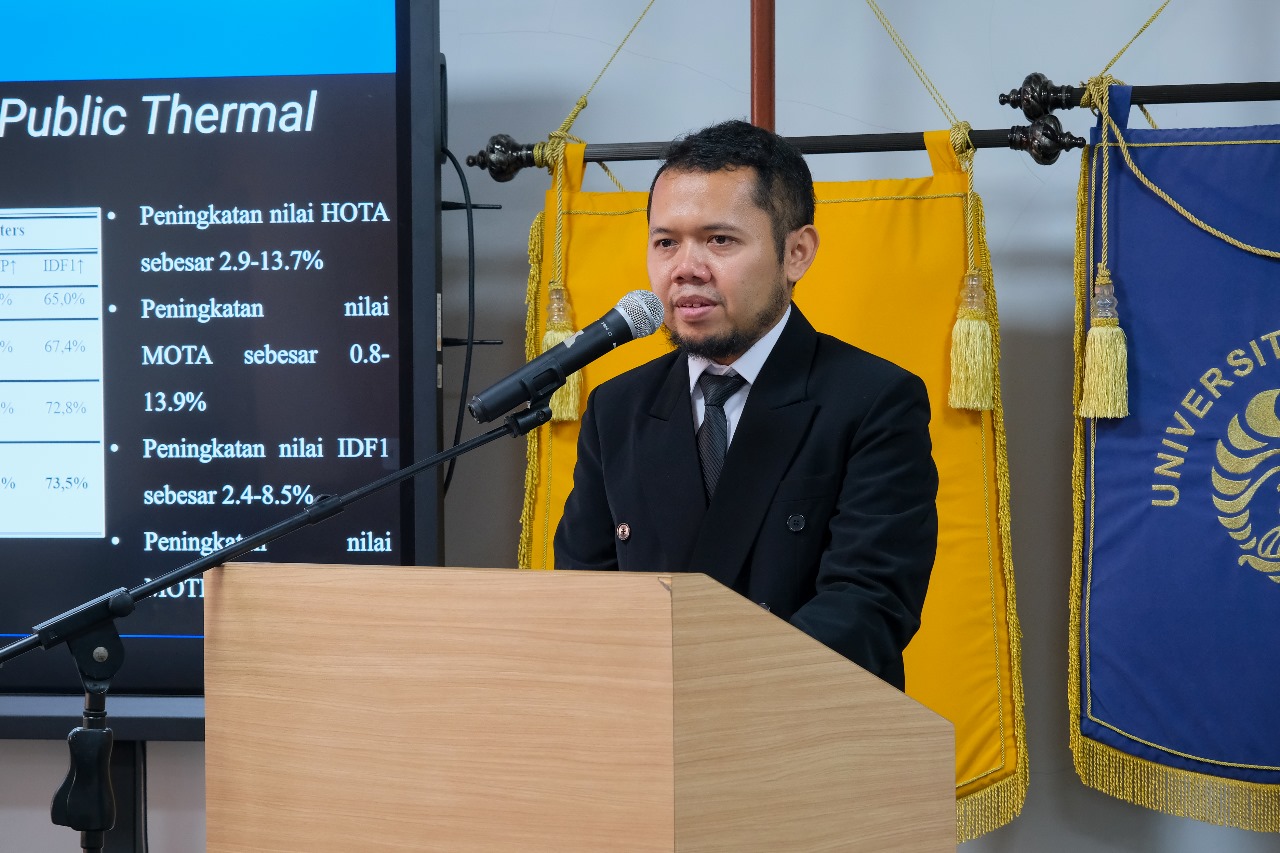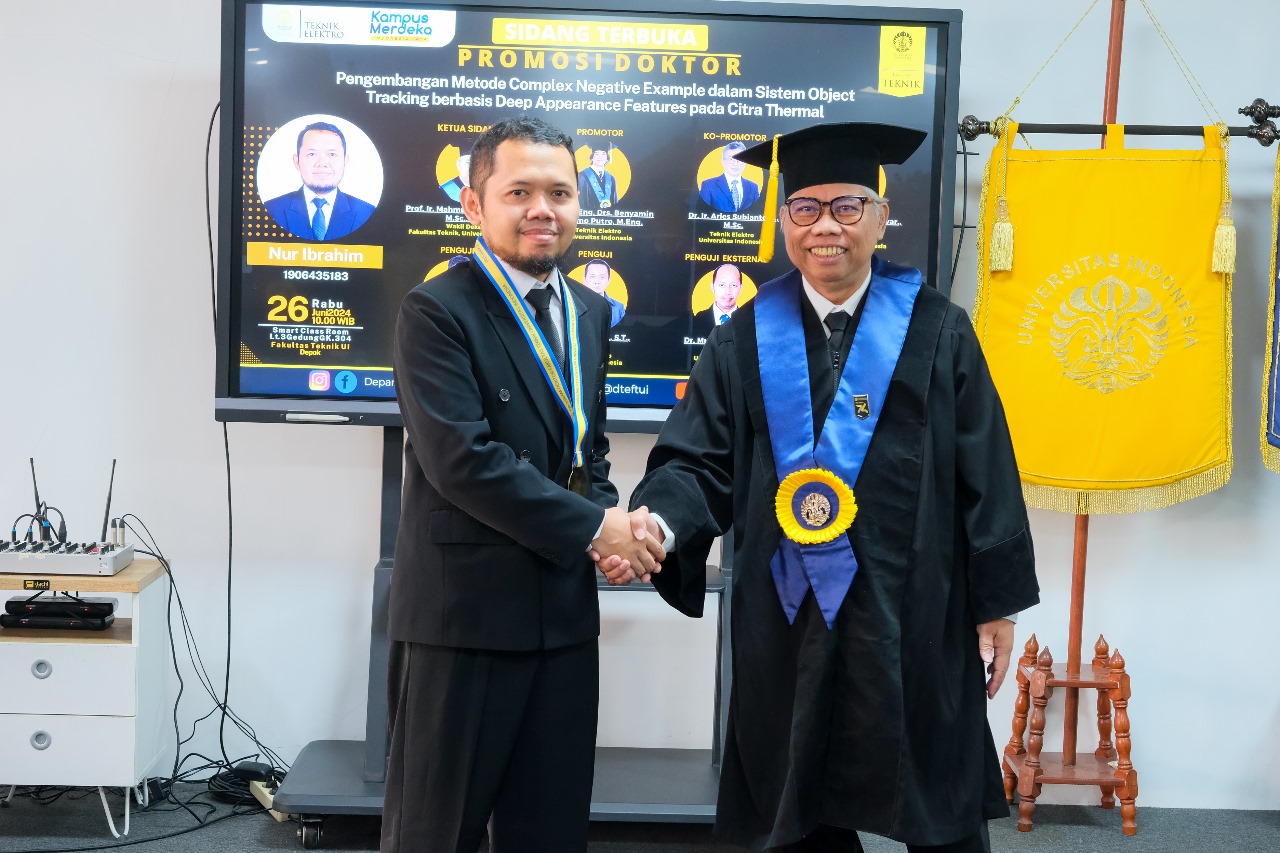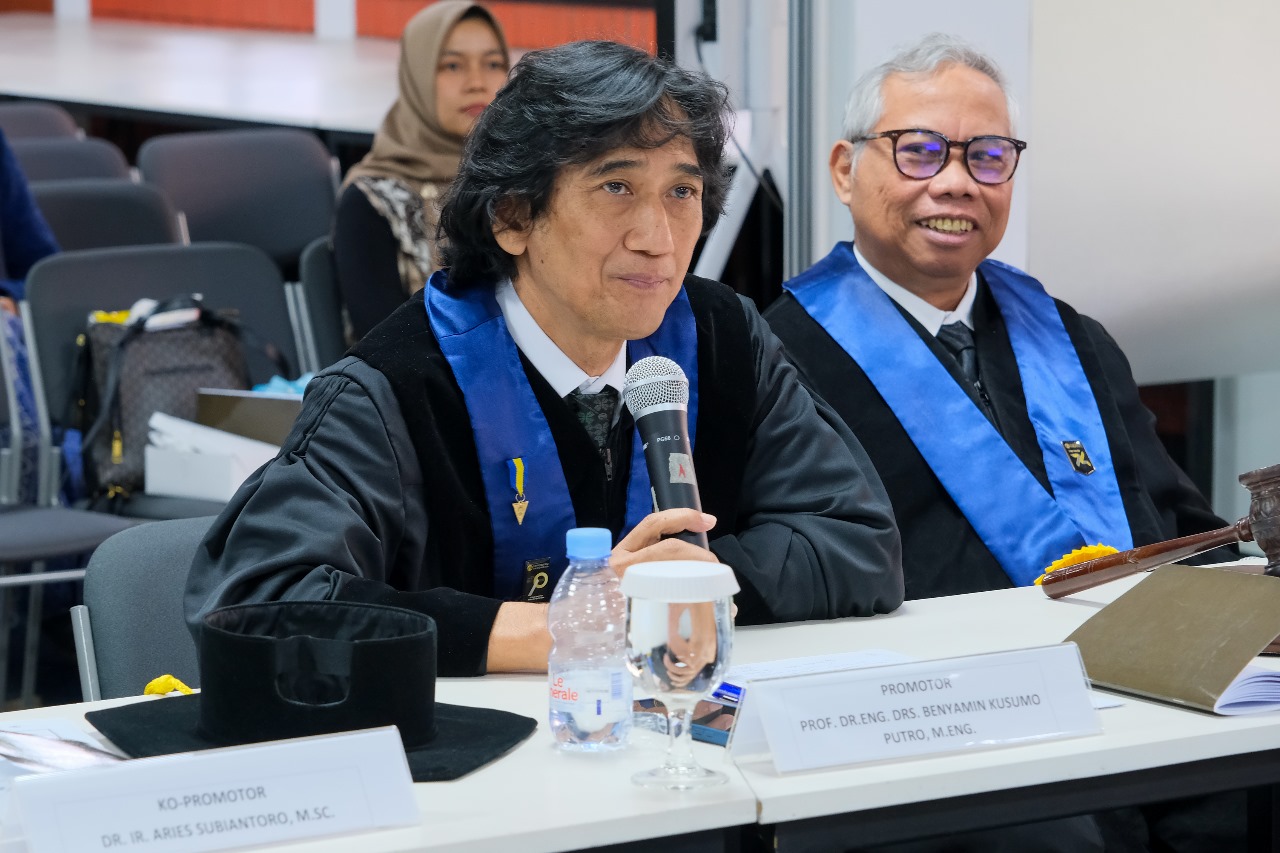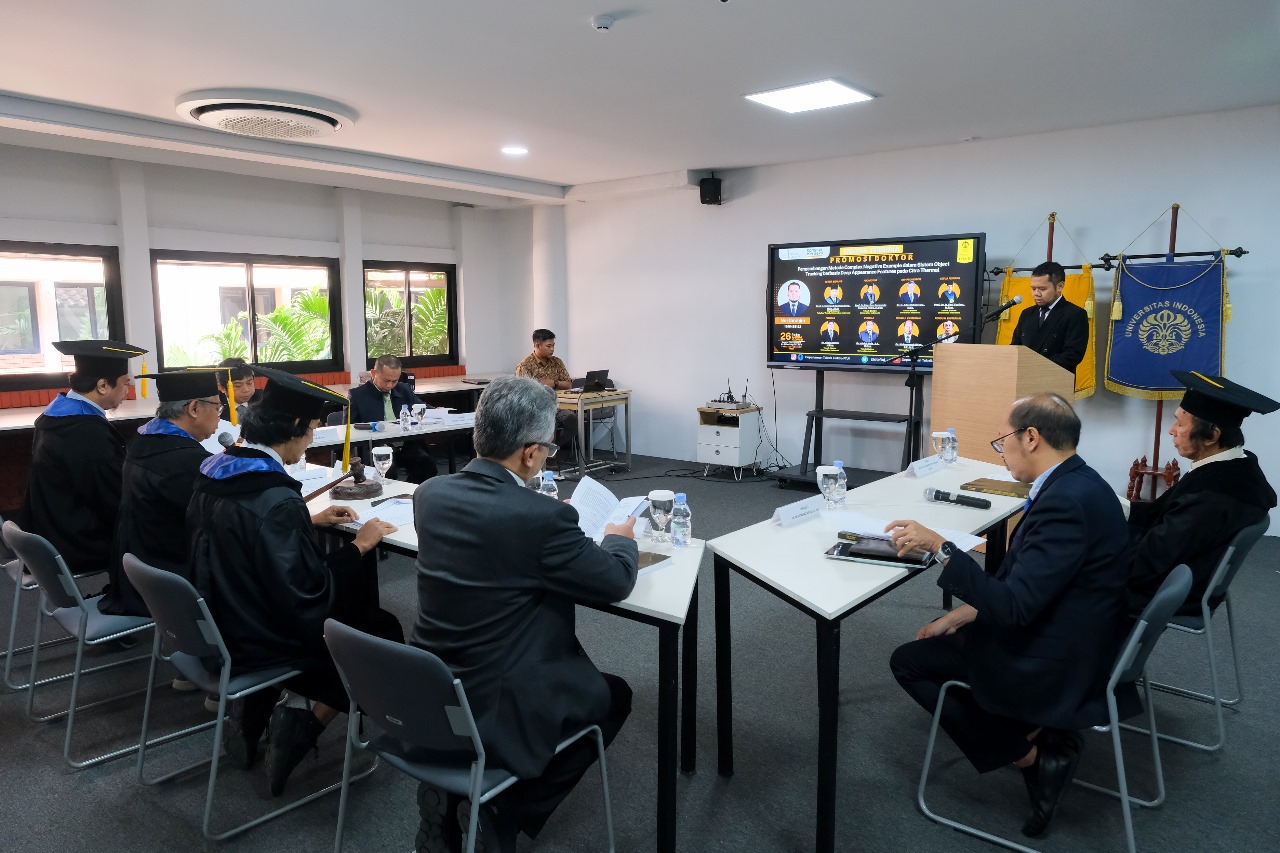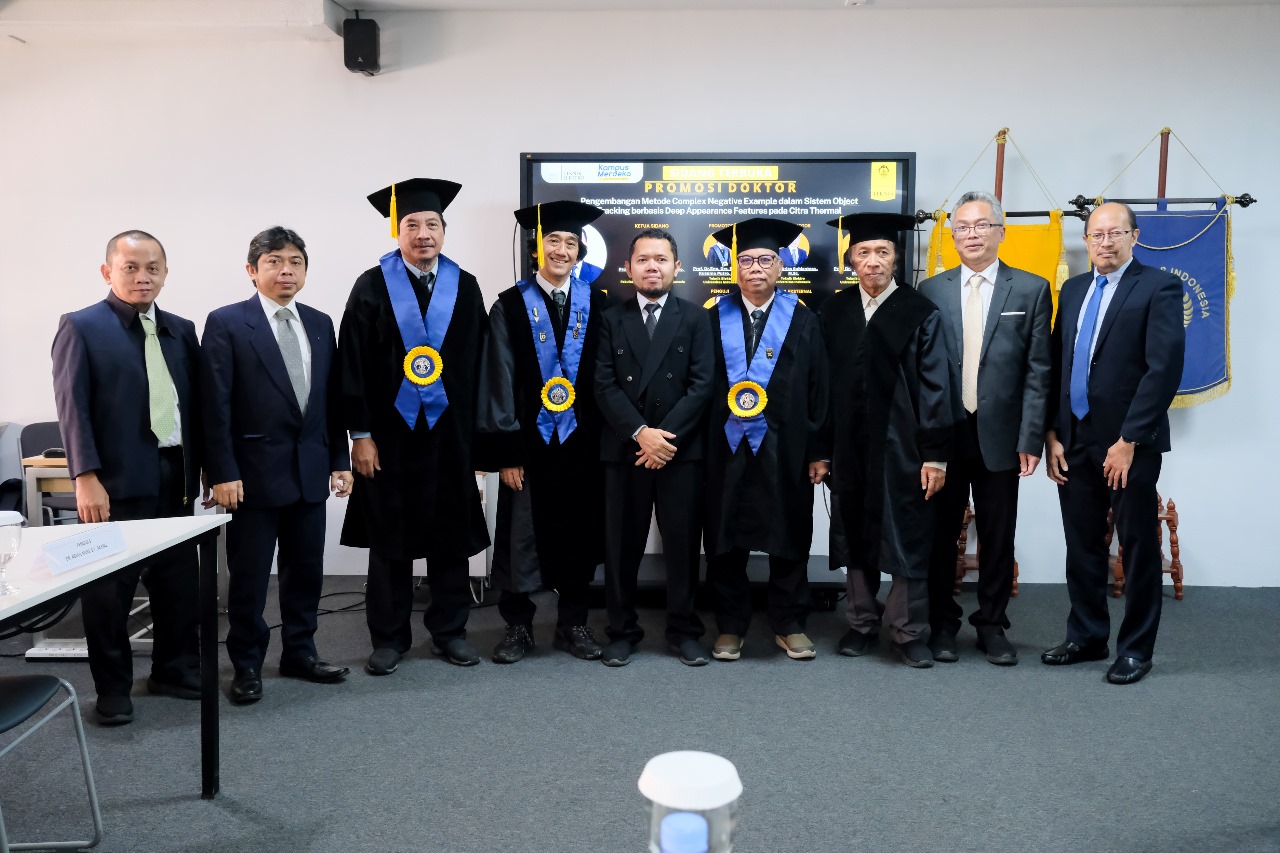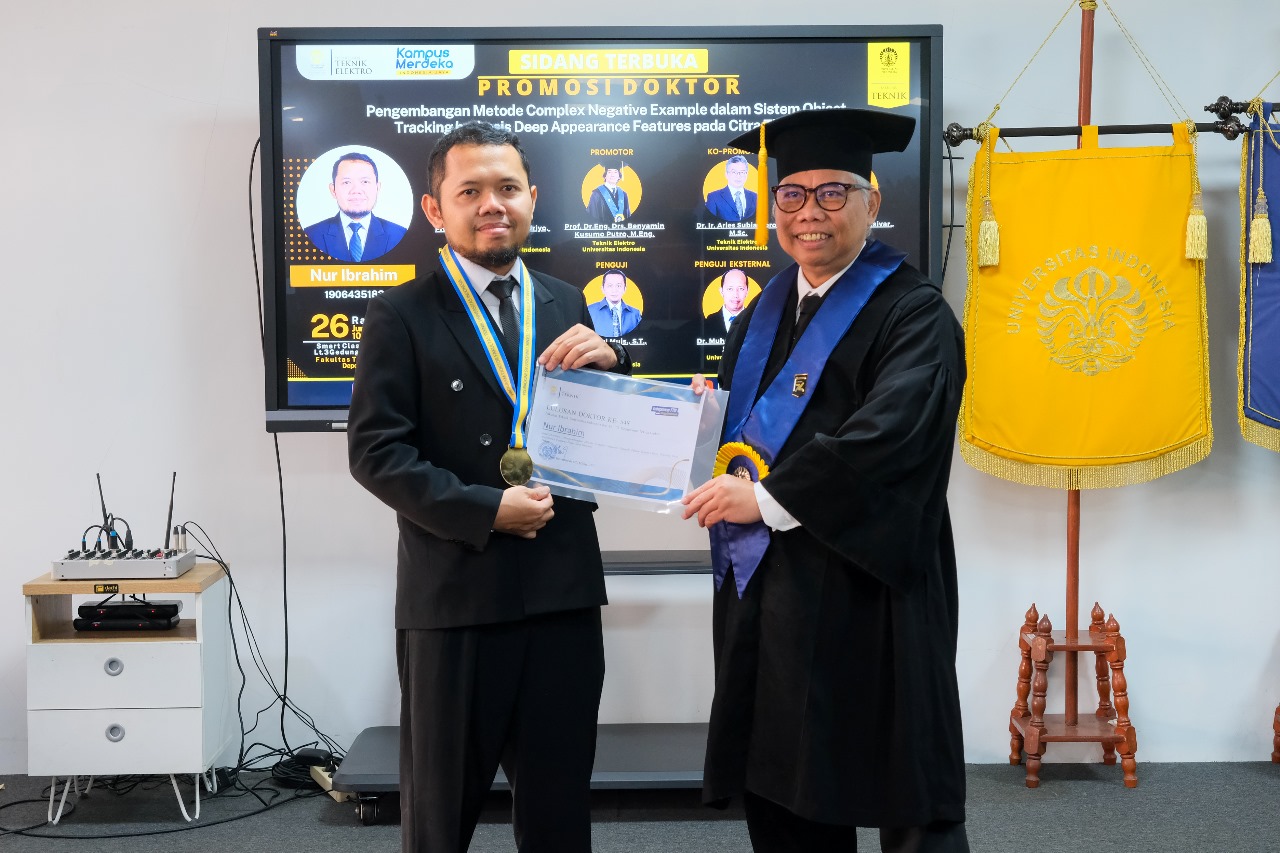Thermal cameras have long been recognized for their advantages over visible-light cameras, particularly in low-light conditions such as at night. However, the biggest challenge in their use is occlusion (when objects are covered) and thermal crossover (when objects have similar thermal appearances).
Therefore, Dr. Nur Ibrahim, a Doctor from the Faculty of Engineering (FT) at the University of Indonesia (UI), developed a new method to improve the effectiveness of surveillance systems at night using thermal cameras. He innovated by developing the complex negative example method, which can reduce the likelihood of false detection and identity switching.
A complex negative example is data that does not contain an object or only contains a small part of an object in the data. This helps the system distinguish the observed object when it is close to or covered by other surrounding objects with similar characteristics.
“Research data was collected using a compact thermal camera installed on an Android-based device. Data collection was conducted at night with occlusion and thermal crossover scenarios in the forest, where the observed objects were humans moving across the camera at various distances and weather conditions,” said Dr. Nur.
The research results showed that the developed method had a significant impact on improving the performance of the surveillance system. In the visual tracking system, adding the interval type 2 fuzzy logic system (IT2 FLS) algorithm to weighted multiple instance learning (WMIL) successfully increased the success rate by 10-14% and precision by 0.21-0.33.
Dr. Nur’s research has made a significant contribution to the field of object tracking, especially for nighttime surveillance applications. The optimization of the WMIL method has successfully increased the success rate and precision, while improvements in the performance of you-only-look-once (YOLO) and deep appearance-based trackers significantly reduced the potential for false detection and identity switching.
Dean of FTUI, Prof. Dr. Ir. Heri Hermansyah, S.T., M.Eng., IPU, stated, “With this innovation, surveillance systems are expected to be more effective in monitoring object movements at night, enhancing security, and providing a quicker response to incidents. This research paves the way for further developments in utilizing thermal cameras for various security and monitoring applications in the future.”
Thanks to his research titled “Development of Complex Negative Example Method in Object Tracking System Based on Deep Appearance Features on Thermal Images,” Dr. Nur earned his Doctorate in Electrical Engineering at the FTUI open doctoral promotion session on Friday (June 28). This research has also been published in various leading international journals and conferences, such as the Journal of Images and Graphics (SCOPUS Q2) and the IEEE 3rd International Conference on Robotics Automation and Artificial Intelligence (RAAI) 2023, and submitted to IJTECH (SCOPUS Q1).
Dr. Nur Ibrahim successfully defended his dissertation and graduated with honours, achieving a GPA of 3.90. He became the 171st Doctorate graduate of the Electrical Engineering Study Program and the 548th in FTUI. The promotion session was led by Prof. Ir. Mahmud Sudibandriyo, M.Sc., Ph.D., with promoter Prof. Dr.Eng. Drs. Benyamin Kusumoputro, M.Eng., and co-promoter Dr. Ir. Aries Subiantoro, M.Sc. The examiners included Prof. Dr. Ir. Feri Yusivar, M.Eng.; Dr. Abdul Halim, M.Eng.; Dr. Abdul Muis, S.T., M.Eng.; Prof. Dr. Ir. Mauridhi Hery Purnomo, M.Eng.; and Dr. Muhammad Rif’an, S.T., M.T.
***
Public Communication Office
Faculty of Engineering Universitas Indonesia

